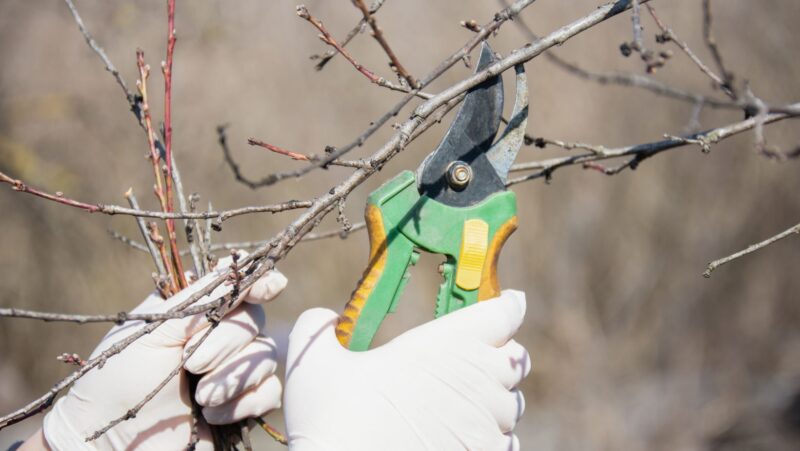
The property insurance market in Florida continues to be a source of significant concern and complexity for homeowners in 2025. Recent years have seen a tumultuous period, with several insurance providers ceasing operations in the state or significantly restricting their underwriting criteria. These actions have made it increasingly difficult for Florida residents to secure affordable and comprehensive property coverage.
The market is showing some early signs of stabilization, with Florida’s personal property insurance sector reporting its first underwriting profit in eight years, a notable $206.7 million gain in 2024 compared to a $174.4 million loss in 2023. Despite this financial turnaround for insurers, homeowners are still grappling with substantial challenges, including steep premium increases and a challenging claim payout landscape.
This report will examine the primary factors fueling the ongoing instability within Florida’s insurance market. These include the escalating frequency and severity of hurricanes, a surge in reinsurance costs, and persistent litigation abuse problems. However, recent legislative changes have aimed to address this.
It will examine how these interconnected issues directly translate into higher insurance premiums and fewer coverage choices for homeowners. The article will also incorporate insights from industry analysts regarding the immediate and future prospects for the Florida insurance environment, analysis of recent legislative measures intended to stabilize the market and share the experiences of homeowners struggling with these conditions. Understanding these dynamics is important for Florida residents navigating this difficult terrain.
Key Factors Contributing to Market Instability
Several deeply interconnected factors contribute to the persistent volatility in Florida’s property insurance market. The state’s unique geographical vulnerability to extreme weather events plays a significant role. Still, global financial pressures and state-specific legal challenges compound it. As detailed in the AM Greatest Market Segment Report, the Florida personal property composite of 45 Florida specialist insurers saw direct premiums written more than double to $11 billion in 2024 from $5 billion in 2020. This dramatic increase reflects the insurers’ efforts to build capital in the face of mounting risks and past losses.

Increased Frequency and Severity of Hurricanes
Florida’s exposure to hurricanes is a primary driver of its insurance market’s instability, and recent trends indicate an intensification of this threat. The NOAA has predicted an above-average hurricane season for 2025, citing warmer sea temperatures and weather patterns, with forecasts suggesting between 13 and 19 named storms. This follows devastating seasons, including Hurricanes Helene and Milton, which resulted in billions of dollars in claims, significantly impacting insurers’ financial health. The increasing power and frequency of such storms directly translate to higher perceived risk, leading to insurers raising premiums and tightening coverage conditions to protect their solvency against future catastrophic events.
Rising Reinsurance Costs
Reinsurance–essentially insurance for insurance companies–is critical to the Florida property insurance market. It allows primary insurers to manage their exposure to catastrophic losses. However, the cost of reinsurance has been escalating globally, and Florida, a high-risk state, feels this impact acutely.
The Florida insurance market continues to rely heavily on reinsurance for balance sheet protection, and it noted that challenging market dynamics had previously led to nine carrier insolvencies since 2021. This increased cost for reinsurers, driven by costly natural disasters worldwide and changing risk models, is inevitably passed down to primary insurers. These insurers, in turn, pass these costs on to homeowners through higher premiums. The challenging market dynamics had previously underscored the financial strain caused, in part, by these rising reinsurance expenses.
Ongoing Issues with Litigation Abuse
Historically, Florida’s property insurance market has been plagued by issues related to litigation abuse, including a high volume of lawsuits and, in some cases, fraudulent claims. This environment contributed significantly to insurer losses and instability. In response, the Florida Legislature convened a special session in December 2022, enacting reforms to curb these practices.
A key change was repealing Florida’s one-way attorney fee provision in first-party property damage coverage disputes, which was intended to reduce frivolous lawsuits. This legislation has significantly reduced predatory litigation. Further legislative proposals, such as Florida House Bill 1551 and Senate Bill 426 (also detailed in the National Law Analysis report), aim to establish a “loser pays” system for attorney fees in first-party insurance disputes, potentially further altering the litigation landscape. While these reforms promise to stabilize the market, the legacy of high litigation costs continues to influence current premium rates.
Impact on Homeowners
The confluence of severe weather, costly reinsurance, and a challenging legal environment has directly and often severely impacted Florida homeowners. The most visible consequence is the dramatic rise in insurance premiums, making homeownership increasingly expensive.
Beyond cost, homeowners also face reduced coverage options as insurers become more discriminating about the risks they are willing to underwrite. This can leave homeowners with policies that offer less protection or force them into the state-run insurer of last resort, Citizens Property Insurance Corporation. Citizens had grown over 150% since January 2021, surpassing 1.4 million policies, though as of March 31, 2025, this number had reduced to approximately 841,470 policies. However, the overall affordability and accessibility of comprehensive coverage remain significant hurdles.
Higher Premiums
Florida homeowners have experienced some of the nation’s highest property insurance premium increases. Direct premiums written by Florida specialist insurers ballooned to $11 billion in 2024, a substantial jump from $5 billion in 2020. This reflects insurers’ efforts to cover increased claims from recent hurricanes and higher reinsurance expenses.
For individual homeowners, this has translated into substantial increases in their annual insurance bills, sometimes by hundreds or even thousands of dollars. News4Jax highlighted the challenges Floridians face in “Making Ends Meet” due to these rising insurance costs. The financial strain is palpable, forcing some residents to make difficult choices about their housing situations or accept higher deductibles to keep premium payments manageable, thereby increasing their out-of-pocket risk in case of a claim.
Reduced Coverage Options
Alongside escalating premiums, Florida homeowners are encountering a shrinking pool of coverage options. Several insurers have either withdrawn from the Florida market entirely or have significantly tightened their underwriting guidelines, declining to write new policies in certain high-risk areas or for older homes. This reduction in competition further empowers remaining insurers to dictate terms and prices.
Consequently, homeowners may find fewer choices for comprehensive coverage, potentially leading to policies with more exclusions or lower limits. A report by Weiss Ratings revealed a concerning trend where 14 Florida insurers denied payment on over half of all claims filed in early 2024. For example, People’s Trust reportedly closed 75.4% of claims without payment. State Farm Florida, a major provider, denied nearly 60% of its claims during this period.
The extent of these denials is alarming:
| Insurer/Group | Claim Outcome (Early 2024) |
|---|---|
| 14 Florida Insurers (Aggregate) | Denied payment on over 50% of claims |
| People’s Trust | Closed 75.4% of claims without payment |
| State Farm Florida | Denied nearly 60% of claims |
These figures illustrate the significant difficulties homeowners can face in obtaining claim payouts, even when they have coverage.
Industry Analyst Insights
Industry analysts cautiously observe the Florida property insurance market, noting recent improvements and persistent underlying risks. The $207 million underwriting profit for Florida-domiciled personal property insurers in 2024 marks “a significant milestone” after years of substantial losses.
This turnaround is largely attributed to legislative reforms and significant rate increases. The emergence of 13 new insurers in Florida is a positive sign, instilling “renewed confidence” in market stability. However, analysts also point out that the market’s health remains fragile and heavily dependent on continued favorable weather patterns and the sustained impact of legislative reforms.
Short-Term Outlook
In the short term, the Florida insurance market is expected to continue its path of cautious stabilization. However, homeowners are unlikely to see immediate widespread relief in premiums. The recent underwriting profit and the entry of new carriers suggest that the market is responding to legislative changes. The balance of power might be shifting towards primary carriers ahead of mid-year reinsurance renewals, which could offer some moderation in reinsurance cost increases.
However, the upcoming 2025 hurricane season poses a significant immediate threat. A season with multiple major storms could quickly reverse recent gains and put renewed pressure on insurers. Therefore, while there are positive indicators, the short-term outlook remains one of vigilance and uncertainty. Claim denial rates are also a significant concern for policyholders.
Long-Term Outlook
The long-term outlook for Florida’s property insurance market hinges on several developing factors, including the sustained effectiveness of legislative reforms, ongoing climate trends, and broader economic conditions. If the 2022 reforms continue to reduce litigation costs and new insurers successfully gain a solid foothold, the market could achieve a more stable equilibrium. However, the increasing risks associated with climate change, such as increasingly intense hurricanes and rising sea levels, represent a persistent long-term challenge that could drive costs higher.
The Florida Office of Insurance Regulation and state lawmakers are reportedly increasing enforcement, which could foster a more disciplined market. Federal initiatives may also play a role in mitigating future risks, although their long-term impact and continuity are subject to political variables. Continued reliance on the global reinsurance market also means Florida will remain susceptible to international pricing trends and capacity.
Recent Legislative Efforts
In response to the escalating crisis in its property insurance market, the Florida Legislature has undertaken significant legislative efforts aimed at stabilization. The most impactful of these were enacted during a special session in December 2022. These reforms targeted several areas identified as key drivers of market instability, particularly attorney fee structures and claims litigation practices. The goal was to reduce the volume of lawsuits insurers faced, which were often cited as a primary reason for financial losses and escalating premiums.
These legislative reforms have contributed to a market rebound, improving the legal environment and addressing persistent litigation challenges. In 2024, the market reported its first underwriting profit in eight years, a development many attribute to these new laws, at least in part.
Market Stabilization Attempts
The legislative reforms of 2022 introduced several key changes designed to stabilize Florida’s property insurance market. One of the most significant was the elimination of “one-way attorney fees,” a provision making insurance companies liable for the attorney fees of policyholders who successfully sued them but did not require them to pay insurer fees if they lost.

Potential Effects of Legislation
The potential effects of the recent and proposed legislation are multifaceted. The 2022 reforms contribute to improved insurer financial health, as evidenced by the $207 million underwriting profit in 2024 (detailed in the AM Greatest Market Segment Report). In theory, this improved financial stability could lead to a more competitive market with more consumer choices over time.
The 40% reduction in policies held by Citizens in the 18 months since September 2023 suggests some success in moving policies back to the private market. However, critics of some legislative changes, particularly those affecting attorney fees, argue they may disadvantage homeowners when legitimately disputing claims.
While the aim is to reduce frivolous lawsuits, it may also make it harder for homeowners with valid claims to secure legal representation against large insurance companies. The long-term effects will be based on how these laws are implemented and interpreted, and whether they balance insurer solvency and policyholder protection.
Homeowner Experiences
The turmoil in Florida’s insurance market is not just a matter of statistics and legislative debates but also real-world struggles for homeowners nationwide. Many residents have shared stories of receiving shockingly high renewal notices, sometimes with premiums doubling or tripling in a short period.
Others have faced the daunting prospect of their insurer non-renewing their policy, leaving them scrambling to find alternative coverage in a market with few affordable options. The emotional toll is significant, with homeowners expressing frustration and anxiety about their ability to protect what is often their largest financial asset. Upon learning their claims were denied, homeowners feel “like a punch in the gut,” highlighting the devastating impact of insurance failing to provide the expected safety net.
What Florida Residents Need to Be Aware Of
Navigating Florida’s current property insurance landscape requires diligence and a proactive approach from homeowners. Given the high premiums and the reported instances of claim denials, understanding the specifics of one’s policy has never been more critical.
Residents should carefully review their coverage limits, deductibles, and exclusions, ensuring they comprehend what is and isn’t covered, particularly for events like hurricanes and floods. Seeking multiple quotes and comparing offers from different insurers, including newly entered carriers, can help find the greatest available terms. With St. Petersburg and Pinellas County hosting free hurricane preparedness events, homeowners should take advantage of such resources to learn how to protect their homes and understand evacuation procedures, which can sometimes influence insurance considerations.
In an environment where insurance companies scrutinize claims more closely, and some reportedly deny a high percentage of them, homeowners must meticulously document their property’s condition and any subsequent damage. If a dispute arises with an insurer over a claim, understanding one’s rights and options is paramount. The legislative changes, while aimed at stabilizing the market, have also altered the dynamics of claim disputes. In situations involving significant property damage or complex claim denials, seeking professional advice can be important.
Consulting with an experienced property insurance lawyer can clarify policy language, help navigate the claims process, and ensure the homeowner’s rights are protected throughout any dispute. A legal professional can effectively assess the validity of a denied or underpaid claim and represent the homeowner’s interests.
Engaging a property insurance lawyer often becomes necessary after unsuccessful attempts to resolve a claim with an insurer. These legal experts specialize in interpreting complex insurance contracts and advocating for policyholders. They help compile documentation, negotiate, and, if needed, litigate to recover owed benefits. Given the complexities of recent Florida legislative changes, including those impacting attorney fees, a knowledgeable advocate can influence the outcome of a disputed claim.
Empowering Florida Homeowners
Being informed and prepared to assert their rights is crucial for Florida homeowners in this turbulent market. Staying updated on legislative developments and market trends is vital. While the market shows signs of improvement for some insurers, homeowners must remain vigilant. Proactive measures, careful policy management, and knowing when to seek expert legal help are essential strategies for Florida homeowners.
Key Takeaways for Florida Homeowners:
- Market Volatility: The Florida property insurance market will remain challenging in 2025 despite some signs of insurer financial stabilization.
- Rising Costs: Due to insurer withdrawals and stricter underwriting, homeowners face high premiums and, in some cases, difficulty finding comprehensive coverage. Direct premiums hit $11 billion in 2024, up from $5 billion in 2020.
- Hurricane Impact: Increased frequency and severity of hurricanes, with NOAA predicting an active 2025 season, remain a primary driver of market instability and high costs.
- Legislative Changes: Recent reforms (December 2022) aimed at reducing litigation abuse have positively impacted insurer profitability, with a $207 million underwriting profit in 2024. However, claim denial rates remain a concern, with reports of some insurers denying over 50% of claims.
- Reinsurance Pressure: Rising global reinsurance costs continue to impact Florida insurers and, subsequently, policyholders.
- Claim Denials: Some insurers have high claim denial rates; for instance, People’s Trust reportedly closed 75.4% of claims without payment in early 2024.
- Know Your Policy: Homeowners should thoroughly understand their insurance policy, including coverage, limits, and exclusions.
- Seek Legal Advice: In cases of claim disputes or unfair treatment, consulting with a property insurance lawyer can be vital to protect your rights and navigate the complex legal landscape.
- Stay Informed: Keep up-to-date with market changes, legislative updates, and available resources for hurricane preparedness and insurance information.












